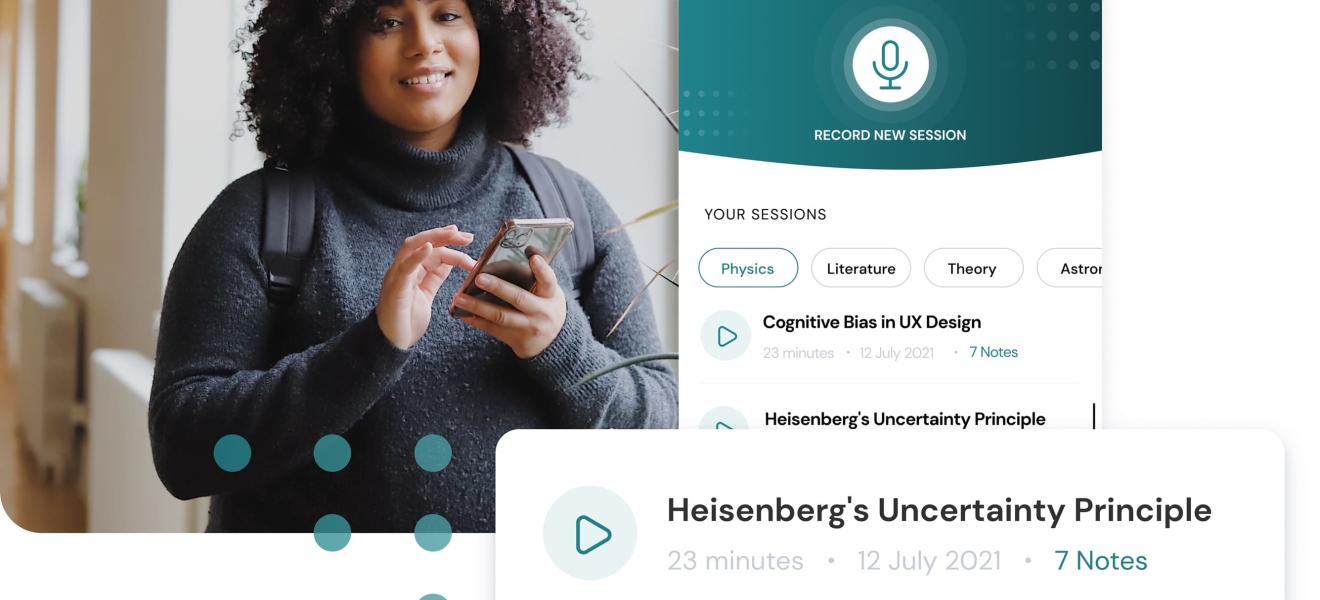
Bristol's CareScribe launches new features for Caption.Ed assistive technology
Software developed by a Bristol based technology business that provides highly accurate, multi-lingual captions for any live or pre-recorded media, is ready to launch a new version with improved features in April.
Caption.Ed, developed by CareScribe, is assistive technology that works even with face-to-face conversations. Dr Richard Purcell, a director at CareScribe and an NHS Doctor, has been developing assistive software since 2-13, but in 2020 he put the company on hold to go back and work full time as an NHS doctor during the start of the pandemic, followed by a brief stint at St. Peter's Hospice in Bristol. At the end of 2020 he returned to full time software development and his company CareScribe has grown from three to 30 members over the last year.
CareScribe builds technology to help people access the world and level the playing field. CareScribe believe that everyone has the right to live the life they wish, and disability and neurodiversity should not stand in the way.
The next generation of Caption.Ed software, launching April 4th, lets users take meaningful notes alongside their transcripts so that they never miss out on what’s important. With Caption.Ed, you can annotate notes against any audio or video, highlight key information and upload additional media to support your notetaking.
All of your Caption.Ed sessions are then available to revisit at a later date, meaning you can scroll back over what was missed, revise what was said and recall why it was important.
Caption.Ed is designed with accessibility at its heart. In fact, it was developed by people who have accessibility needs which is why Caption.Ed has accessibility requirements baked into its very design. It has an unobtrusive user interface (UI) which takes up only a small amount of your screen, and also has the ability for the user to change the text size or the appearance of their captions to help with readability.
It’s designed to work seamlessly across in-person and online teaching, making it the perfect solution for the future of hybrid learning.
Caption.Ed is also fantastic at captioning topics which use complex terminology such as health and life science classes, social sciences, or law. It also works across different languages including: French, Spanish, Italian, German, Swedish, Dutch, Danish and Simplified Chinese.
Richard Purcell, CareScribe Director, said: “I really struggled with my dyslexia at school, medical school and finally at work. Ever since it’s been my mission to level the playing field. I founded CareScribe with the aim of improving accessibility and inclusion for everyone – be that in education or the workplace.”
Captioning is often seen as a solution for people who are deaf or who have hearing loss but it has much wider applications. Netflix recently reported that 80% of people watching their platform use subtitles. Most have no hearing loss but find that captions help to focus attention and boost comprehension. This can be an essential aid for people with neurodiverse traits that may affect working memory, concentration, writing speed and even those learning English as an additional language. For example, Caption.Ed is benefiting people with:
- Dyslexia
- Autistic spectrum disorder
- ADHD
- Auditory processing disorder
- Mental Health Conditions
Purcell added: “Thousands of people are already using Caption.Ed to allow them to remove barriers and participate more fully in their studies or in the workplace. As with all great assistive technology, Caption.Ed can be useful for just about anyone. Caption.Ed should be a game-changer for work, study and home life and I’m so excited to introduce our new version to users.”
Caption.Ed is already being used across many colleges and UK universities, including the University of Cambridge, St Andrews University, Edgehill University and many more. It’s also recommended by assessors within the Disabled Student Allowance and Access To Work.
People can register their interest now via the Caption.Ed website and book a demo with a member of the CareScribe team.







